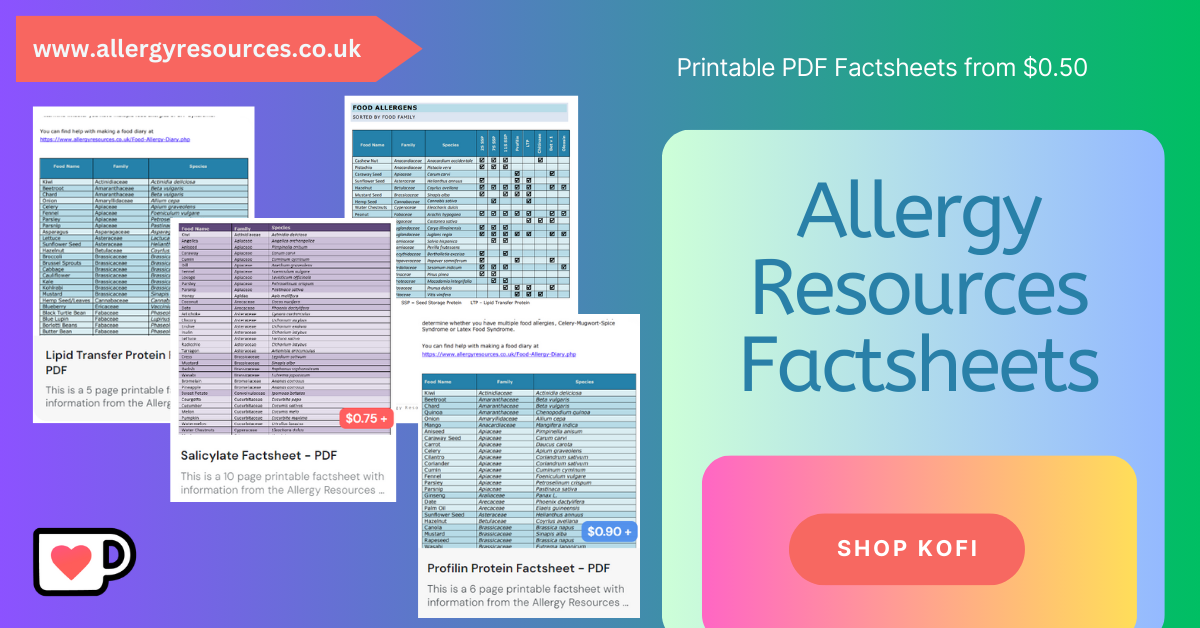
LACTOSE INTOLERANCE
This is very simplified information about lactose intolerance – there are more resources available at the end of the page for further reading for those who are interested in knowing more.
Human breast milk naturally contains lactose, so even if you cut dairy from your diet your breast milk will still contain lactose and not be suitable for a child with lactose intolerance.
There have been claims that raw milk (which is unpasteurised) does not cause symptoms of lactose intolerance, this is unfounded, most forms of dairy will contain lactose unless they are specifically labelled as being processed to remove it.
You can read more about any of these foods from the dedicated Food Allergy Index
NHS - Lactose Intolerance
NHS Inform - Lactose Intolerance
Web MD - Lactose Intolerance
Navigating Lactose Intolerance: Unveiling Its Impact on Digestive Health and Uncovering Hidden Sources, 2024
Changes in gut microbiota and lactose intolerance symptoms before and after daily lactose supplementation in individuals with the lactase nonpersistent genotype, 2024
Lactose Intolerance, 2023
Can Lactose Intolerance Be a Cause of Constipation? A Narrative Review, 2022
Prevalence of lactose intolerance and nutrients intake in an older population regarded as lactase non-persistent, 2021
Lactose intolerance: An update on its pathogenesis, diagnosis, and treatment, 2021
Lactose Intolerance Assessed by Analysis of Genetic Polymorphism, Breath Test and Symptoms in Patients with Inflammatory Bowel Disease, 2021
High prevalence of food intolerances among US internet users, 2020
Lactose intolerance but not lactose maldigestion is more frequent in patients with irritable bowel syndrome than in healthy controls: A meta-analysis, 2018
Prevalence and Presentation of Lactose Intolerance and Effects on Dairy Product Intake in Healthy Subjects and Patients With Irritable Bowel Syndrome, 2013
Fructose and lactose intolerance and malabsorption testing: the relationship with symptoms in functional gastrointestinal disorders, 2013
What is lactose?
Lactose is a sugar found in milk. This includes cow, sheep, goat, buffalo and human milk.What causes a lactose intolerance?
Most food intolerances are usually the result of a lack of metabolic enzymes. You can read more about them on the Food Intolerance Page. Lactose intolerance is caused by reduced amounts of an enzyme called lactase which aids in the digestion of the sugar. Lactose would usually be digested in the intestines and be broken down before it makes it to the bowel.Can you be allergic to lactose?
The simple answer is no, lactose is a sugar and not a protein, like a true IgE food allergy. Allergy to milk is usually to one of the proteins in cow's milk and is a dysfunction of the immune system rather than the gastrointestinal system.Which are the symptoms of a lactose intolerance?
In lactose intolerance poor digestion means lactose ends up in the bowel where normal bacteria interact with it causing painful gastrointestinal symptoms. Symptoms may include:- Abdominal Pain
- Bloating
- Constipation
- Stomach Pain
- Diarrhoea
Which foods contain lactose?
Lactose is found in most mammalian milks. They include:- Cow milk and dairy products made with cow milk
- Sheep milk and sheep cheeses
- Goat milk and goat cheeses
- Buffalo milk and associated products
- Other mammalian milks and their associated products
Human breast milk naturally contains lactose, so even if you cut dairy from your diet your breast milk will still contain lactose and not be suitable for a child with lactose intolerance.
There have been claims that raw milk (which is unpasteurised) does not cause symptoms of lactose intolerance, this is unfounded, most forms of dairy will contain lactose unless they are specifically labelled as being processed to remove it.
You can read more about any of these foods from the dedicated Food Allergy Index
Is there lactose in plant products?
No, lactose sugars are only found in dairy products.Which medications do I need to avoid?
Lactose is found in many birth control and gastrointestinal medications. They are well labelled, you can ask your health provider to make sure anything you are prescribed is lactose free.Is lactose bad, do I need to avoid foods containing it?
No, foods containing lactose are excellent sources of calcium and fat, which is especially good for the growth of children. You only need to avoid them if you are sure they are causing problems. You need to ensure that you are giving yourself an alternative source of calcium.Can we inactivate lactose in the food we eat?
Some food allergens can be destroyed by processing, high heat or freezing. Studies have shown that cooking foods containing lactoses does not reduce or eliminate the sugars. There are types of medication for lactose intolerance which contain lactase, the enzyme which breaks it down.Further Reading
National Institure for Health - Lactose Intolerance (US)NHS - Lactose Intolerance
NHS Inform - Lactose Intolerance
Web MD - Lactose Intolerance
Articles and Journals
Anaphylaxis to lactase supplements may imitate cow milk allergy, 2025Navigating Lactose Intolerance: Unveiling Its Impact on Digestive Health and Uncovering Hidden Sources, 2024
Changes in gut microbiota and lactose intolerance symptoms before and after daily lactose supplementation in individuals with the lactase nonpersistent genotype, 2024
Lactose Intolerance, 2023
Can Lactose Intolerance Be a Cause of Constipation? A Narrative Review, 2022
Prevalence of lactose intolerance and nutrients intake in an older population regarded as lactase non-persistent, 2021
Lactose intolerance: An update on its pathogenesis, diagnosis, and treatment, 2021
Lactose Intolerance Assessed by Analysis of Genetic Polymorphism, Breath Test and Symptoms in Patients with Inflammatory Bowel Disease, 2021
High prevalence of food intolerances among US internet users, 2020
Lactose intolerance but not lactose maldigestion is more frequent in patients with irritable bowel syndrome than in healthy controls: A meta-analysis, 2018
Prevalence and Presentation of Lactose Intolerance and Effects on Dairy Product Intake in Healthy Subjects and Patients With Irritable Bowel Syndrome, 2013
Fructose and lactose intolerance and malabsorption testing: the relationship with symptoms in functional gastrointestinal disorders, 2013